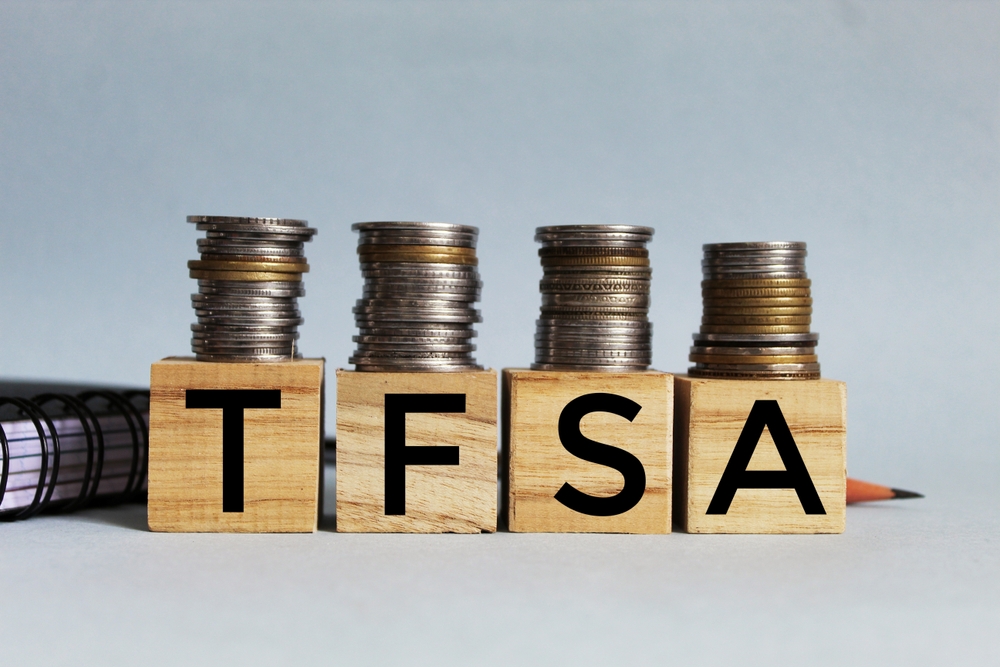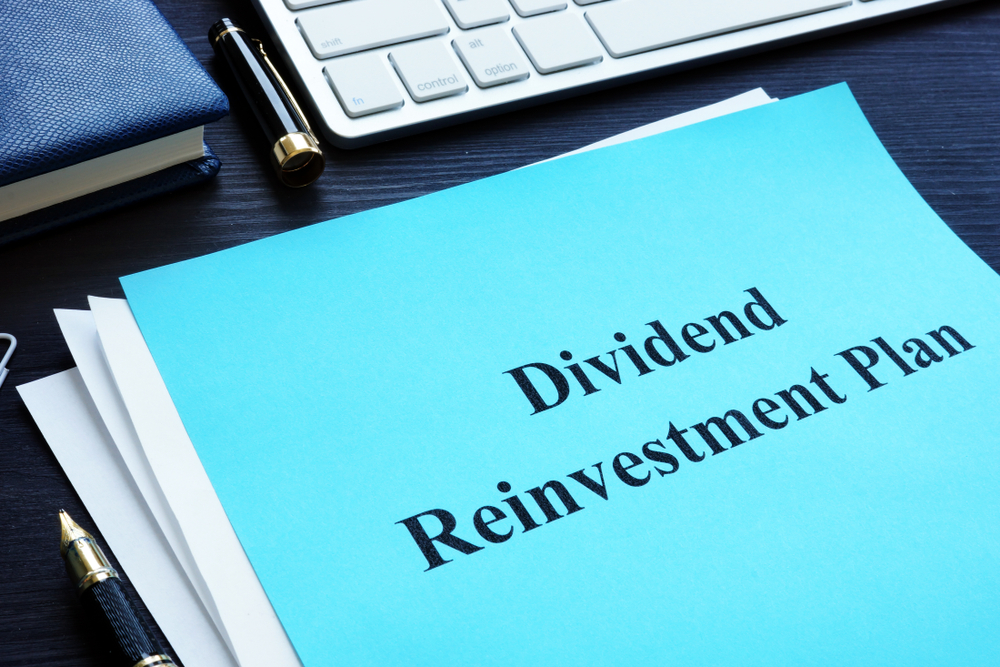Money habits may change with new apps, tools, and trends, but some timeless principles remain the backbone of financial success. In Canada, building wealth still comes down to making wise choices, avoiding unnecessary risks, and sticking to disciplined money practices. These classic rules work because they balance saving, investing, and spending practically. Here are 24 Canadian money rules that still hold today.
Live Within Your Means

Living within your means is one of the most reliable money rules that still works today. It’s about spending less than you earn and resisting the urge to keep up with trends or unnecessary luxuries. By setting a realistic budget and sticking to it, you avoid falling into debt and build financial security. Many Canadians find that when they track their income and expenses carefully, they spot areas to cut costs without sacrificing essentials. This practice not only reduces financial stress but also creates space for saving and investing, laying the foundation for long-term wealth.
Always Pay Yourself First

Paying yourself first means making savings a priority before any other expense. Instead of waiting to see what’s left at the end of the month, set aside a portion of your income as soon as you get paid. This simple shift builds discipline and ensures you consistently grow your savings. Canadians often use automatic transfers to RRSPs, TFSAs, or savings accounts to make this habit effortless. Over time, even small amounts compound into meaningful wealth. Paying yourself first is not just about money—it’s about creating financial security and giving your future self the freedom to make better choices.
Build and Maintain an Emergency Fund

An emergency fund acts as a financial safety net when life takes unexpected turns. Job loss, medical bills, or urgent repairs can strain your finances if you’re unprepared. By setting aside three to six months of living expenses, you protect yourself from relying on debt during emergencies. Canadians who keep this fund separate from everyday accounts find it easier to resist dipping into it for non-essentials. Building this fund takes time, but even starting small makes a difference. With an emergency fund in place, you gain peace of mind and the flexibility to handle challenges without derailing long-term goals.
Avoid High-Interest Debt

High-interest debt, like credit card balances or payday loans, can quickly erode your financial health. The interest adds up so fast that even small amounts become difficult to repay, keeping you trapped in a cycle. Avoiding this kind of debt—or paying it off as quickly as possible—is essential for building wealth. Canadians benefit from using credit cards wisely, paying balances in full each month, and exploring low-interest options if debt becomes unavoidable. By steering clear of high-interest debt, you free up money that can instead go toward savings, investments, and future opportunities, strengthening your financial stability over time.
Save Before You Spend

The habit of saving before spending helps you prioritize financial security over short-term desires. Instead of adjusting your savings based on leftover income, you reverse the process—putting savings first and planning expenses with the remainder. Many Canadians achieve this by setting automatic deposits into their savings or investment accounts. This way, saving becomes a non-negotiable part of their budget, just like rent or groceries. Over time, this approach builds discipline and accelerates wealth growth. By saving before spending, you create a system that supports long-term goals while still allowing for everyday living within a comfortable budget.
Diversify Your Investments

Diversification is a timeless money rule because it reduces risk while keeping growth potential strong. Rather than putting all your money into one asset, spreading it across stocks, bonds, real estate, and other investments balances performance. In Canada, investors often diversify using mutual funds, ETFs, or a mix of registered accounts like RRSPs and TFSAs. This approach helps smooth out returns since another’s gains can offset one asset’s poor performance. Diversifying doesn’t guarantee profits, but it creates stability and protects wealth in uncertain markets. For long-term success, having a mix of investments is always better than relying on a single investment.
Don’t Time the Market

Many Canadian investors make the mistake of trying to time the market, hoping to buy low and sell high. The truth is, even seasoned professionals find this nearly impossible to do consistently. Instead of guessing short-term trends, focus on long-term investing and steady contributions. Market dips will happen, but history shows that markets grow over time. By staying invested and avoiding panic selling, you give your money the best chance to compound. Patience, discipline, and a straightforward strategy matter more than prediction. Following this rule helps protect wealth and reduce stress in uncertain markets.
Take Advantage of RRSPs

Registered Retirement Savings Plans (RRSPs) remain one of the best tools for Canadians to save for retirement. Contributions are tax-deductible, which lowers taxable income today, while investments inside the plan grow tax-deferred until withdrawal. This allows your money to compound more effectively over time. When used strategically, RRSPs can also help first-time homebuyers through the Home Buyers’ Plan or fund education through the Lifelong Learning Plan. Maximizing annual contributions and planning withdrawals wisely ensures long-term benefits. By using RRSPs effectively, Canadians can build retirement security while enjoying immediate tax savings.
Use TFSAs for Tax-Free Growth

The Tax-Free Savings Account (TFSA) has become a powerful tool for Canadians looking to grow wealth efficiently. Contributions are made with after-tax dollars, but all growth—whether from interest, dividends, or capital gains—is entirely tax-free. Unlike RRSPs, withdrawals from a TFSA are not taxed, and the contribution room resets the following year. This flexibility makes TFSAs ideal for both short-term savings and long-term investing. Canadians can hold stocks, ETFs, mutual funds, or cash inside a TFSA, making it versatile. Consistently contributing to a TFSA helps maximize compounding while avoiding future tax burdens.
Contribute Regularly to Savings and Investments

One of the simplest yet most effective money rules is making regular contributions to savings and investments. Setting up automatic transfers ensures consistency and removes the temptation to skip months. Regular investing also takes advantage of dollar-cost averaging, smoothing out market volatility over time. Whether markets rise or fall, steady contributions keep wealth-building on track. Even small, consistent deposits can grow significantly with compounding. This disciplined approach builds financial stability while reducing reliance on timing or luck. By contributing regularly, Canadians create lasting habits that secure financial goals and future security.
Track Your Expenses

Tracking expenses may sound simple, but it’s one of the most effective ways to stay in control of your money. Many Canadians underestimate how much they spend on dining out, subscriptions, or impulse buys. By recording every expense—using apps, spreadsheets, or even notebooks—you can see where money goes and make better decisions. Awareness often leads to cutting unnecessary costs and redirecting funds toward savings or investments. Tracking also helps set realistic budgets and spot unhealthy spending habits. This habit builds discipline, prevents overspending, and supports long-term financial goals without unnecessary stress.
Maintain a Good Credit Score

A good credit score remains vital for financial health in Canada. It affects everything from mortgage approval to interest rates on loans and credit cards. Paying bills on time, keeping credit utilization low, and limiting unnecessary applications are key to maintaining strong credit. A higher score can save thousands of dollars over time by reducing borrowing costs. Landlords and employers may also check credit history, making it even more critical. Reviewing credit reports regularly helps catch errors or fraud early. By building and maintaining a good credit score, Canadians secure access to better financial opportunities.
Shop with Cash or Debit When Possible

Using cash or debit for everyday purchases helps you stay mindful of your spending. It prevents you from relying too much on credit, which can lead to unnecessary debt. When you use physical cash or directly from your account, you feel the impact of each transaction, making you less likely to overspend. This approach also helps with budgeting since you only spend what you have. By reducing credit use, you avoid interest charges and maintain better financial discipline, which supports long-term economic stability.
Buy Insurance for Protection, Not Investment

Insurance should be about protecting yourself and your family, not chasing returns. Life, health, home, and disability insurance act as financial safety nets when unexpected events happen. Some products try to combine investment with insurance, but they often come with high fees and limited growth. Instead, focus on pure protection plans that cover your needs. Then, invest separately in vehicles like TFSAs or RRSPs where growth potential is higher. Keeping protection and investment separate ensures you get the best of both worlds—security today and wealth building for tomorrow.
Plan for Retirement Early

Planning for retirement as early as possible makes a huge difference. Thanks to compound growth, the money you save in your 20s or 30s has decades to grow. Even small contributions add up to significant amounts over time. Early planning also helps you set realistic lifestyle goals for retirement and adjust your savings plan accordingly. With tools like RRSPs, TFSAs, and workplace pensions, Canadians have strong ways to grow retirement funds. Starting early reduces stress later in life and gives you more financial freedom to enjoy your retirement years comfortably.
Keep Housing Costs Affordable

A common rule of thumb is to keep housing costs within 30% of your income. Overspending on housing can leave little room for savings, investments, or emergencies. Whether you’re renting or buying, affordability matters for financial stability. For homeowners, being cautious about mortgage size ensures you’re not overburdened if interest rates rise or income changes. For renters, finding a balance between comfort and cost is key. Keeping housing manageable frees up money for other priorities, like retirement savings or paying off debt, which supports long-term wealth growth.
Don’t Overleverage on Mortgages

Many Canadians fall into the trap of borrowing too much when buying a home. While lenders may approve you for a large mortgage, that doesn’t mean you should take it all. Overleveraging makes you vulnerable to financial stress if interest rates rise, job loss occurs, or unexpected expenses arise. A safer approach is buying within your means, leaving room for other financial goals. By keeping mortgage payments comfortable, you reduce risks and maintain flexibility in your budget. A home should be a foundation of stability, not a source of stress.
Reinvest Dividends for Growth

When companies pay dividends, reinvesting them rather than cashing out helps your wealth grow faster. Dividend reinvestment plans (DRIPs) automatically purchase more shares, compounding your returns over time. This method works exceptionally well for long-term investors who don’t need the cash immediately. Reinvesting dividends increases your ownership in strong companies, leading to more future dividends. Over years or decades, this creates a powerful cycle of compounding growth. By staying consistent, you build wealth steadily and benefit from the long-term strength of the market.
Compare Before You Buy

Whether it’s groceries, electronics, or financial products, comparing before buying saves money. Prices, features, and benefits can vary widely between providers. Taking time to research helps you avoid overpaying or settling for poor value. Online tools and apps make comparisons easy, from credit cards to insurance to everyday shopping. Over time, even small savings add up to meaningful amounts. Being a savvy shopper means not rushing into purchases and weighing options carefully. This habit encourages financial discipline and ensures you make the most of your hard-earned money.
Live Below Your Raise

When your income increases, it’s tempting to upgrade your lifestyle immediately. However, living below your means can accelerate wealth building. Instead of increasing all expenses, direct part of the raise into savings or investments. This way, your financial security grows while you still enjoy some lifestyle improvements. Avoiding lifestyle inflation ensures your income increase makes a long-term difference rather than disappearing into short-term pleasures. Building this habit creates a balance between enjoying today and securing tomorrow, putting you ahead in reaching financial independence faster.
Save Windfalls Instead of Splurging

Windfalls like tax refunds, bonuses, or inheritances can make a big difference to your finances—if used wisely. While it’s tempting to splurge, saving or investing these amounts provides long-term benefits. Even directing half toward savings while enjoying a small portion for spending creates balance. Windfalls can boost your emergency fund, reduce debt, or strengthen your investment portfolio. Since these funds weren’t part of your regular income, saving them doesn’t affect your day-to-day lifestyle. This habit accelerates wealth growth and reduces financial stress over time.
Focus on Long-Term Financial Goals

Short-term wants can often distract from long-term priorities. Setting financial goals—like buying a home, funding retirement, or building generational wealth—gives you direction. By keeping these goals in mind, you make better daily financial decisions. Investing with a long-term perspective helps you stay steady during market fluctuations, instead of panicking. Writing down your goals and reviewing them regularly keeps you accountable. Long-term focus creates discipline and enables you to avoid emotional mistakes. Ultimately, it’s about building financial security that supports both your present needs and future dreams.
Continue Learning About Money

The financial world changes constantly, and staying informed keeps you prepared. From new tax rules to emerging investment options, learning about money ensures you make smarter decisions. This could mean reading financial books, following trusted advisors, or taking online courses. Even small bits of knowledge add up over time. By improving your financial literacy, you gain confidence in handling money, avoid common mistakes, and adapt to new opportunities. Lifelong learning ensures you’re always building on your foundation, giving you a stronger position for long-term wealth growth.
Teach Financial Literacy to the Next Generation

Passing financial knowledge to children or young adults helps them avoid mistakes and build smart habits early. Teaching concepts like budgeting, saving, and the dangers of debt equips them for lifelong stability. Practical lessons—such as managing allowances or opening a savings account—make the learning real. Sharing your experiences, both successes and mistakes, makes money conversations relatable. Encouraging financial literacy in the next generation creates a ripple effect, strengthening families and communities. By giving them the right tools, you set them up for a future of independence and confidence.
21 Products Canadians Should Stockpile Before Tariffs Hit

If trade tensions escalate between Canada and the U.S., everyday essentials can suddenly disappear or skyrocket in price. Products like pantry basics and tech must-haves that depend on are deeply tied to cross-border supply chains and are likely to face various kinds of disruptions
21 Products Canadians Should Stockpile Before Tariffs Hit